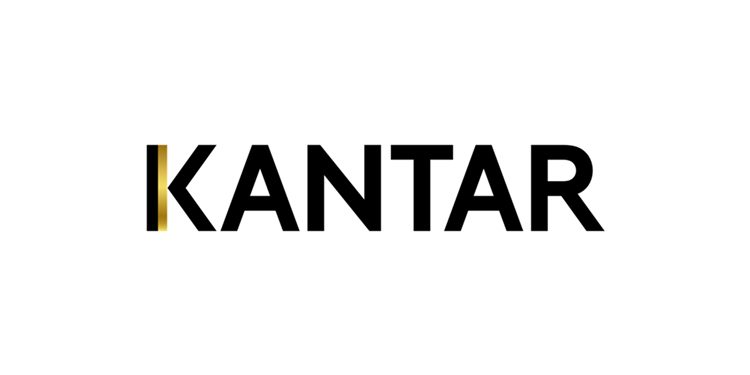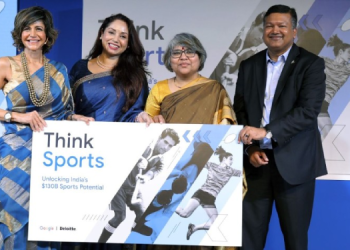New Delhi: Women Political Leaders and Kantar, creators of The Reykjavik Index for Leadership, have found that as the world grapples with the devastating impacts of COVID-19, society has not become more progressive in how it views equality in leadership, as measured by the Index since 2019. This is despite widespread global movements calling for greater equality between men and women.
The Reykjavík Index for Leadership measures the extent to which society is comfortable with women in leadership positions, as compared to men. A score of 100 would indicate complete agreement that men and women are equally suited to leadership, and any score of less than 100 indicates prejudice.
Research this year was carried out in G7 countries as well as India, Kenya and Nigeria. Among the findings:
- The UK and Canada have the most progressive views in the G7, with scores of 81;
- Both women and men hold views that are prejudiced against women leaders as compared to men, but women across the G7 are more likely to think that men and women are equally suited to lead than men are;
- Germany’s position in the G7, according to Index score, has declined since 2019
- On average in the G7, young men demonstrate less progressive views than their female peers
- British women have highest Index scores – meaning most likely to say women and men are equally suitable
- Media and entertainment (81), natural science (81), economics and political science (81), and banking and finance (80) are the sectors with the highest average G7 Index scores
| | 2020 | 2019 | 2018 | Change 2019 vs 2020 |
| UK | 81 | 73 | 77 | +8 |
| Canada | 81 | 77 | 76 | +3 |
| USA | 76 | 75 | 76 | +1 |
| France | 74 | 77 | 76 | -3 |
| G7 average | 73 | 73 | 72 | +1 |
| Italy | 68 | 68 | 63 | 0 |
| Japan | 68 | 70 | 67 | -3 |
| Germany | 66 | 69 | 66 | -2 |
Thanks to the support of the Bill & Melinda Gates Foundation, the research was conducted in India building on the study from 2019 and extended to create new baselines for Kenya and Nigeria. Their scores are:
- India: 68 (+1 vs 2019)
- Kenya: 53
- Nigeria: 47
Young men are less progressive
The study indicates a gap between how men and women perceive suitability for leadership – and our 2020/2021 data shows that young people (18-34) in the G7 countries have lower Index scores than older groups. Young men are the least progressive – on average in the G7, nine points less than their female peers (67 vs 76), and four points less than older men aged 35-54 (at 71).
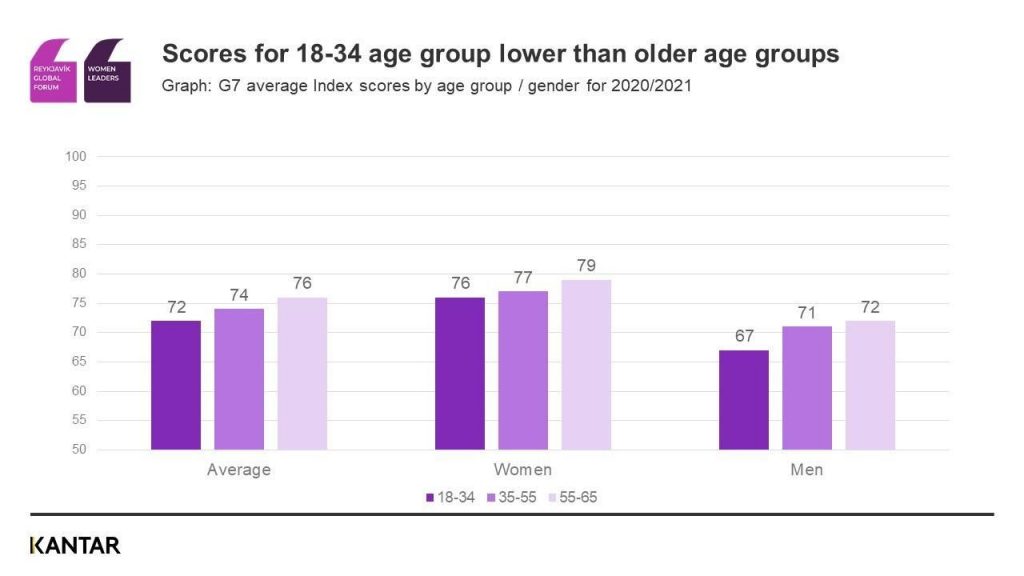
COVID-19 has put women on the front line
The Reykjavík Index for Leadership ranks 23 sectors for their suitability for both male and female leaders. The healthcare sector, in which 75% of the workforce is female,1 lands in 18th place with a score of 71, behind other sectors historically led by men including the judiciary (79), high-tech and AI (78), and aerospace and engineering (both 72).
While media and entertainment (81), natural sciences (81), and banking and finance (80) continue to be seen as the sectors with the highest Index scores, barriers for women do exist; today women account for less than 2% of bank CEOs and hold just 20%of board seats in banks and supervision agencies.
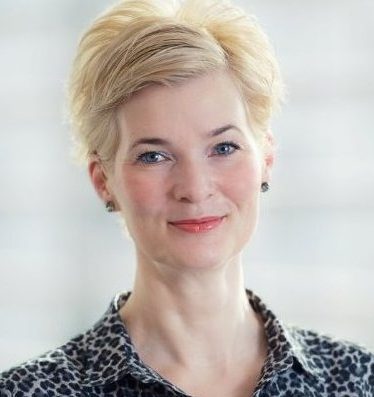
“In the third year we have conducted this study, it is striking to see the absence of progress”, comments Michelle Harrison, Global CEO of Kantar’s Public Division. “2020 has been a year of significant social turbulence. We are committed to providing the evidence to better understand where progress towards equality is taking place, and as we have seen this year, where it is not. Evidence is an essential tool to assess where public and private sector policy and interventions can have impact.”
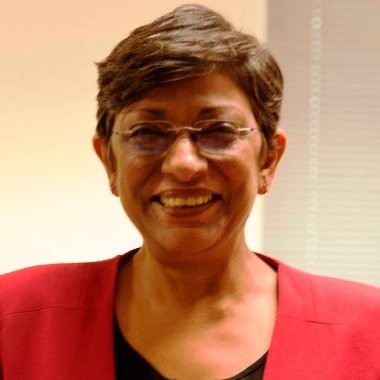
Commenting on the findings, Preeti Reddy, CEO – South Asia, Insights Division, Kantar said, “Compared to some of the G7 countries, India’s score of 68 indicates that, while there is marginal progress, but we have a lot of work that needs to be done everywhere. There is clearly a need for more opportunities for women and role models in some of the sectors to break perceptions and to be able to accept women as leaders. Governments and businesses can lead the way in driving positive change for the future and can play a critical role in improving this situation across our workplaces, homes and communities.”
The Index is formally launched and initial results presented at the Women Leaders Global Forum
held virtually from 9 to 11 November 2020. The full report is available to download from November 9th from here: www.kantar.com/reykjavik-index

